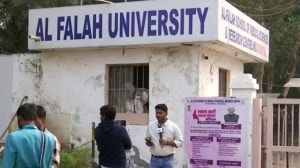Italian town dreams of independence on a princely scale
Nec flector,nec frangorwe wont bow or break when it comes to our plans.
When the Italian government announced in mid-August that it would force towns with fewer than 1,000 residents to merge with their neighbours as part of an emergency cost-cutting budget,there were strident protests across the country.
Evoking the history of Italy,a nation forged from countless city-states protective of their local traditions,dialects and diversity,some of the mayors of the 1,963 towns affected by the measure turned in the keys to their cities. Others said they would welcome immigrants escaping war-torn Libya to push their populations over the 1,000-person threshold.
The mayor of Filettino has loftier aspirations: he wants his town in the hills east of Romepopulation 598to become an independent principality.
If thats what it takes to keep the town autonomous and protect its natural resources, said the mayor,Luca Sellari. Besides,he added,its everyones dream to be a prince.
As befits a monarch,Sellari has lost little time in pursuing his dream. The would-be principality already has a coat of arms that now graces everything from T-shirts to a liqueur,the Amaro of the Principality,which a local bartender,Maria Cerrocchi,said was just a brand-name bottle with a photocopied label stuck on it.
Filettino has even printed its own currency,the fiorito,which means flowered (like the town will flower in its new guise, the mayor explained) and which harks back to the florin,the money first coined in 13th-century Florence.
Across Italy,small-town mayors are angry that the national government chose to cut their relatively negligible budgets rather than tackle big,politically sensitive issues like raising the countrys retirement age.
Do you know how much all the mayors and town councillors in small Italian towns cost the state? asked Franca Biglia,president of the National Association of Small Towns,known as Anpci. The answer: 5.8 million euros,she said,about the same as the lower house of Parliament pays for its restaurant services.
She added,We work like crazy,and they want to cut something that costs the same as their kitchen. What are they waiting for? A revolution to explode?
The government may be harbouring similar thoughts. After Anpci mayors loudly protested in front of the lower house on Friday,they were assured that their concerns would be taken into account when the Senate voted on the crisis measures beginning this week.
There are also signs that the government is softening on other fronts,like the proposed cuts to research institutes with fewer than 70 employees. A number of proposed budget amendmentsmany of them offered by the ruling majorityhave piled up for the Senate to address. That is a sign of serious political difficulties for Prime Minister Silvio Berlusconi,whose increasingly fractious majority in Parliament is striving to make the austerity measures more palatable to voters.
Berlusconi wants to continue governing,but he cant,thats the problem, said the opposition leader Pier Luigi Bersani of the Democratic Party.
But even if the measure to force the small-town mergers is withdrawn,Sellari,the would-be prince of Filettino,said he would go ahead with his monarchial plans. He was scheduled to meet on Monday with one of Italys most famous lawyers to examine the legalities involved in secessionconstitutional details that he said he was certain could be overcome.
Its part of the principalitys motto, he said. Nec flector,nec frangorwe wont bow or break when it comes to our plans. ELISABETTA POVOLEDO





- 01
- 02
- 03
- 04
- 05


























